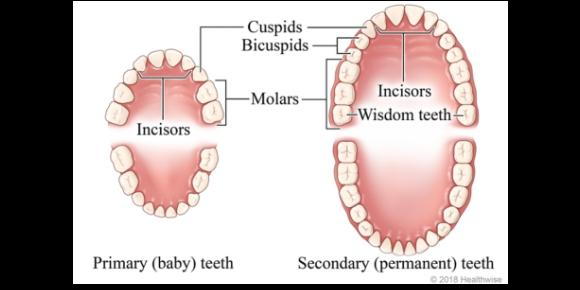As a parent or caregiver, you may wonder why baby teeth are important since they eventually fall out to make way for permanent teeth. However, baby teeth play a critical role in your child’s dental health and development. In this blog, we will discuss the importance of taking care of baby teeth and provide tips on how to do so.
- Baby teeth help with speech development
Baby teeth aid in speech development. Without them, children may struggle to pronounce certain sounds or words correctly, which can lead to communication difficulties. Maintaining healthy baby teeth can help your child speak more clearly and confidently.
- Baby teeth aid in proper nutrition
Baby teeth also play a vital role in proper nutrition. Chewing is the first step in the digestive process, and without healthy teeth, children may have trouble eating a variety of foods. When baby teeth are healthy, children can properly chew and break down food, which helps with digestion and nutrient absorption.
- Baby teeth save space for permanent teeth
Another crucial role of baby teeth is to save space for permanent teeth. If a baby tooth is lost too early due to decay or injury, the neighboring teeth may shift, causing crowding or misalignment of permanent teeth. This can lead to more extensive and expensive orthodontic treatment in the future.
- Baby teeth are susceptible to decay
Baby teeth are more susceptible to decay than permanent teeth, and decay can occur as soon as the first tooth appears. This is due to the fact that baby teeth have thinner enamel, making them more vulnerable to bacteria and plaque buildup. Therefore, it is crucial to establish good oral hygiene habits early on to prevent tooth decay and promote healthy teeth.
Tips for taking care of baby teeth:
- Start oral hygiene early
It is recommended to start brushing your child’s teeth as soon as the first tooth appears. Use a soft-bristled toothbrush and a tiny amount of fluoride toothpaste. For children under three years old, use a rice-grain-sized amount of toothpaste, and for children three to six years old, use a pea-sized amount.
- Avoid sugary drinks and snacks
Sugary drinks and snacks can lead to tooth decay. Avoid giving your child sugary drinks such as juice or soda, and limit their intake of sweet snacks such as cookies and candy.
- Regular dental check-ups
Regular dental check-ups are crucial for maintaining healthy baby teeth. It is recommended to bring your child for their first dental visit when their first tooth appears or by their first birthday. This helps establish a good relationship with the dentist and allows for early detection of any potential dental problems.
In conclusion, taking care of baby teeth is crucial for your child’s overall dental health and development. Baby teeth aid in speech development, proper nutrition, save space for permanent teeth, and are susceptible to decay. By establishing good oral hygiene habits early on and bringing your child for regular dental check-ups, you can help ensure that their baby teeth stay healthy and strong.

